
|
Scooped by
Ana Cristina Pratas
onto Voices in the Feminine - Digital Delights March 11, 2013 9:56 PM
|
Get Started for FREE
Sign up with Facebook Sign up with X
I don't have a Facebook or a X account

 Your new post is loading... Your new post is loading...
 Your new post is loading... Your new post is loading...
|

|
Scooped by
Ana Cristina Pratas
June 16, 3:26 PM
|
"There is no one way to think, hell, often there is no way to think at all as one grieves. How does one, how can one ever even think about the loss of a loved one – parent, child, lover, friend – before or after it occurs? So I appreciate too the heavy work that other writers have undertaken to try to express the inexpressible, to try to understand the unfathomable.
Here's where I pause for the refrain, the reminder: artificial intelligence "knows" nothing. It "knows" nothing because it "experiences" nothing.
Debate all you want about "reasoning" and "reasoning models." The provocative and disruptive ways of thinking lie elsewhere – in imagination, in curiosity, in hope, in unraveling... in how we grapple with love and loss."

|
Scooped by
Ana Cristina Pratas
June 6, 5:32 AM
|
"'Now, what I want is, Facts. Teach these boys and girls nothing but Facts. Facts alone are wanted in life. Plant nothing else, and root out everything else. You can only form the minds of reasoning animals upon Facts: nothing else will ever be of any service to them. This

|
Scooped by
Ana Cristina Pratas
June 4, 9:02 AM
|
Explore how students are using generative AI beyond writing—to create visuals, design slides, enhance presentations, and communicate more effectively in business communication courses.

|
Scooped by
Ana Cristina Pratas
June 2, 8:39 AM
|
Storytelling and the Art of Tenderness: Olga Tokarczuk’s Magnificent Nobel Prize Acceptance Speech –
"She calls for something beyond empathy, something achingly missing from our harsh culture of dueling gotchas — a literature of tenderness:
Tenderness is the art of personifying, of sharing feelings, and thus endlessly discovering similarities. Creating stories means constantly bringing things to life, giving an existence to all the tiny pieces of the world that are represented by human experiences, the situations people have endured and their memories. Tenderness personalizes everything to which it relates, making it possible to give it a voice, to give it the space and the time to come into existence, and to be expressed."

|
Scooped by
Ana Cristina Pratas
June 1, 10:48 AM
|
Narrow the aperture of your attention enough to take in any one thing fully, and it becomes a portal to everything. Anneal that attention enough so that you see whatever and whoever is before you f…

|
Scooped by
Ana Cristina Pratas
May 25, 7:01 AM
|
"Even though most Americans live in urban areas, even though a third of Americans live in California, Texas, Florida, or New York, even though around 40% live on the coast (east or west), even though more than half are under age 40, the depiction of "average American" – particularly in an election year – is often an older middle-age white person who just happens to be sitting in a neighboring booth from the reporter, casually eating pancakes on a Wednesday morning but more than willing to chit-chat politics (and endorse Trump's policies)."
(...)
"Young people in education are therefore subject to three distinct threats to their educational rights" from AI, Beetham argues:
1.So-called predictive AI is used to collect their data, to make unaccountable and discriminatory decisions about their futures, and to surveil and discipline their interactions with educational systems
2.So-called generative AI is used to capture and monopolise cultural and educational content, to advance hegemonic languages and perspectives, and to replace pedagogical relationships with automated agents
3.The narrative of ‘AI futures’ is used to refocus educational outcomes around the automation of intellectual work, stunting the development of young people’s capacities, and preparing them for work that will be precarious, exploitative, and algorithmically disciplined "

|
Scooped by
Ana Cristina Pratas
May 25, 6:52 AM
|
When AI first began colonizing language — which is still our best instrument for bridging the abyss between us, a container for thought and feeling that shapes the contents — I asked ch…

|
Scooped by
Ana Cristina Pratas
May 22, 4:08 AM
|
“Here lies the paradox of solitude. Look long and hard enough at yourself in isolation and suddenly you will see the rest of humanity staring back.”

|
Scooped by
Ana Cristina Pratas
May 14, 8:08 AM
|
Co-creating classroom ground rules on day one fosters collaboration, inclusion, and student ownership—enhancing engagement, respect, and meaningful learning.

|
Scooped by
Ana Cristina Pratas
May 9, 5:13 AM
|
There's a tendency to write about technological change as an "all of a sudden" occurrence – even if you try to offer some background, some precursors, some concurrent events, or a longer, broader perspective, people still often read "all of a sudden" into any discussion about the arrival of a new

|
Scooped by
Ana Cristina Pratas
Today, 9:35 AM
|
"There is a deep disorder in the discourse of generative artificial intelligence (AI). When AI seems to make things up or distort reality — adding extra fingers to human hands, inventing nonexistent court cases, or generating surreal advertisements — we commonly describe them as AI hallucinations. But a metaphor of hallucination reinforces the misconception that AI is conscious; it implies that AI experiences reality and sometimes becomes delirious. We need a new way to talk about AI outputs when they don't match our expectations for realism or facticity. For this paper, we analyzed the implications of more than 80 alternative terms suggested by scholars, educators, and commentators. Ultimately, we chose a more fitting term: AI mirage. Just as a desert mirage is an artifact of physical conditions, an AI mirage is an artifact of how systems process training data and prompts. In both cases, a human can mistake a mirage for reality or see it for what it really is. We propose the general use of the term AI mirage in place of AI hallucination because it can help build AI literacies, prompting us to explore how AI generates outputs and how humans decide what those outputs mean."

|
Scooped by
Ana Cristina Pratas
June 18, 3:33 AM
|
"From reactive to predictive design: Rather than designing based on past experiences and receiving feedback after development, we can now simulate learner responses before committing resources to development phases.
From generic to psychologically informed design: Instead of treating learners as cognitive processing units with preferences, we can engage with them as complete psychological entities with complex motivations, concerns, and contextual pressures.
From assumption-based to evidence-based iteration: AI personas provide methodologically sound alternatives between expensive learner research and assumption-driven decisions, offering evidence-based insights with superior reliability compared to conjecture while maintaining greater accessibility than comprehensive learner studies."

Another use of AI in education: Learners' persona.

|
Scooped by
Ana Cristina Pratas
June 8, 10:23 AM
|
The Importance of Art Education with or without AI Sociologist Zygmunt Bauman argued that modernity is characterized by fluidity and that “the job of critical thought is to bring into the light the many obstacles piled on the road to emancipation.” (Bauman, 2000, p. 51).

|
Scooped by
Ana Cristina Pratas
June 4, 9:06 AM
|
"When an AI cheerfully validates poorly written learning objectives, inappropriate delivery methods, or evaluation strategies that measure satisfaction rather than impact, it's not being helpful—it's enabling underperformance, perhaps even professional malpractice."

|
Scooped by
Ana Cristina Pratas
June 3, 2:21 PM
|
So let’s get one thing out of the way: I think “AI literacy” is a dangerous device of neoliberal education and it deserves to be dismissed out of hand.

|
Scooped by
Ana Cristina Pratas
June 2, 8:37 AM
|
Explore the benefits of alternative grading systems, including contract grading and labor-based models, to reduce student stress, enhance motivation, and clarify expectations for success in the classroom.

|
Scooped by
Ana Cristina Pratas
May 30, 11:35 AM
|
Back in 2012 ("the year of the MOOC"), when Sebastian Thrun told Wired that, in fifty years time there would only be ten universities left in the world and his startup Udacity had a chance to be one of them, I admit, I laughed. I laughed and laughed and laughed
(...)
Artificial intelligence – not just generative AI but particularly generative AI – is one way to do this, and it functions quite neatly as a package of ideologies and practices that seeks to destroy education. I mean, I know that many folks think they can bend these technologies to "make easy" and "do good," but under our current political and economic conditions, that is dangerous, if not impossible. I am appalled – truly appalled – to read calls to "reconsider reading" because of AI; to outsource not just teaching but thinking to AI; to shrug off research and writing because of an imitation of inquiry that comes packaged with a friendly chat interface; to allocate care and service with AI; and, in the end, to mock those who question and refuse AI – to actively undermine others' choice and autonomy – just because the marketing copy insists "things are changing so fast" and someone's got the stats to "prove" it. "

|
Scooped by
Ana Cristina Pratas
May 25, 6:59 AM
|
A response to UNESCO's call on AI and the Future of Education

|
Scooped by
Ana Cristina Pratas
May 22, 4:41 AM
|
A special edition practical guide to selecting & building AI agents for instructional design and L&D

|
Scooped by
Ana Cristina Pratas
May 21, 8:21 AM
|
Discover practical strategies to boost undergraduate student engagement with course content through peer conversations, active reading techniques, and in-class participation tools.

|
Scooped by
Ana Cristina Pratas
May 18, 6:55 AM
|
“Judging whether life is or is not worth living amounts to answering the fundamental question of philosophy,” Albert Camus wrote in one of the most sobering opening pages in literature.…

|
Scooped by
Ana Cristina Pratas
May 13, 8:22 AM
|
Donna Haraway A Cyborg Manifesto Science, Technology, and Socialist-Feminism in the Late Twentieth Century 1985

|
Scooped by
Ana Cristina Pratas
April 30, 1:40 PM
|
AI tools can expedite and improve writing. Here are some of the most helpful strategies I use for writing with AI for instructional design.




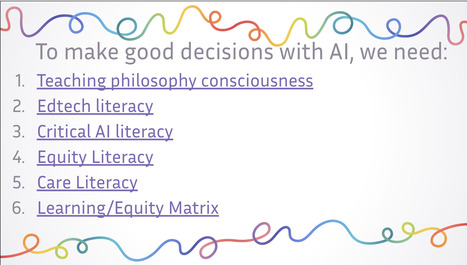


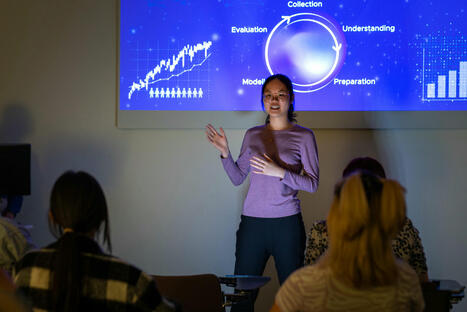
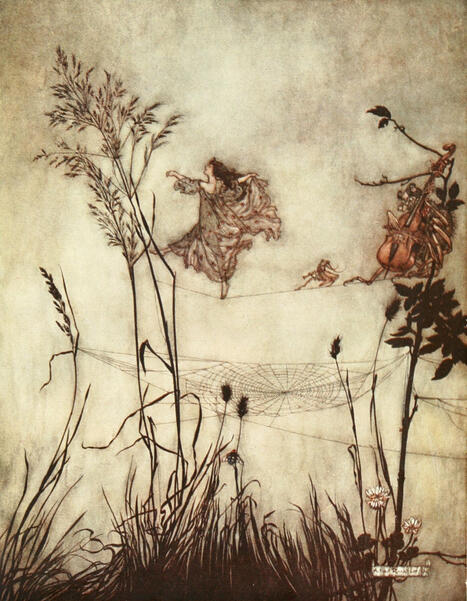
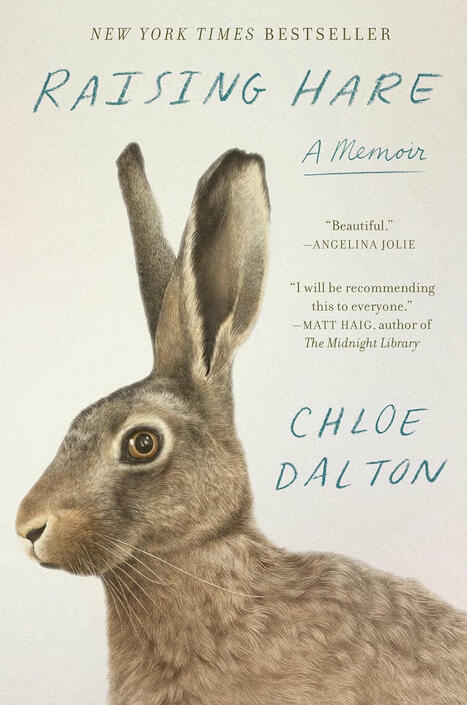
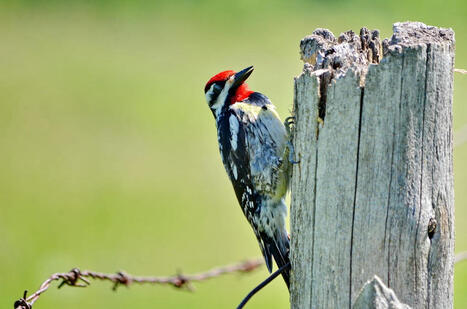

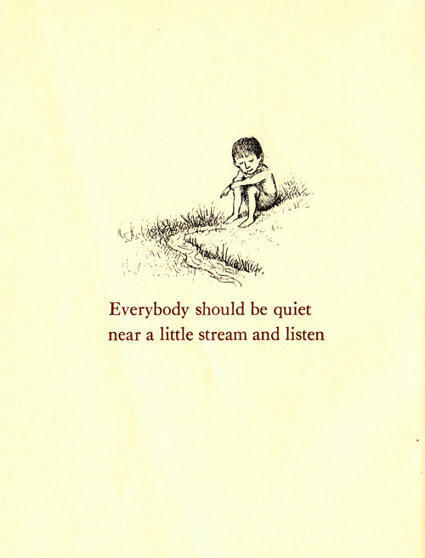




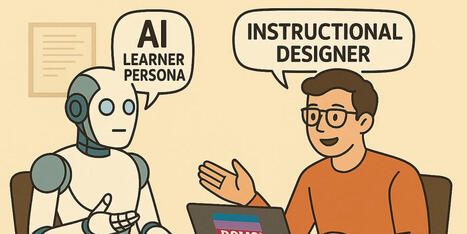

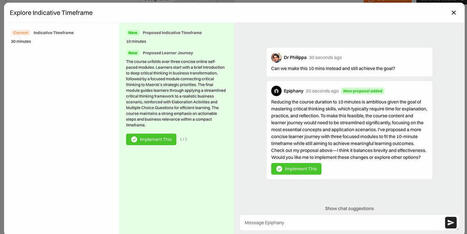



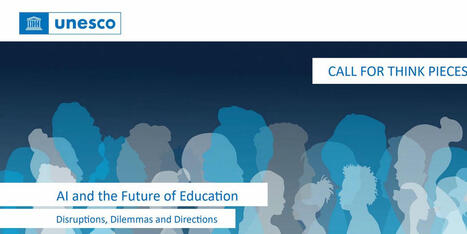
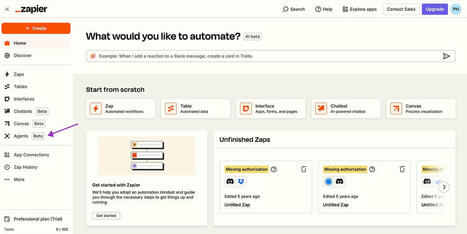



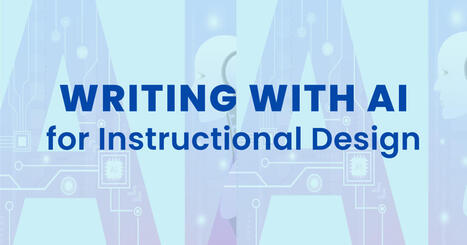





One set of key findings was around the role of communities in the release of Open Educational Resources (OER). How professional practice is transformed to support activities underpinning the release of OER, sometimes called open educational practice (OEP), is not well understood. Communities of practice provide a positive environment for changing professional practice.
Examples of communities are subject discipline communities or communities within an institution. Each community will have members with different roles (for example academics, support staff, learners), regulated by specific rules. These sorts of communities are important if the benefits of a culture of open resources, open knowledge, free sharing and peer collaboration in education are to be realised.
The UKOER programme provided a context to explore these tensions and highlight the benefits and limitations of communities in transforming professional practice.
Check also:
- http://www.scoop.it/t/21st-century-learning-and-teaching?tag=Community
- http://www.scoop.it/t/21st-century-learning-and-teaching?tag=OER
- https://gustmees.wordpress.com/2013/01/23/is-your-professional-development-up-to-date/